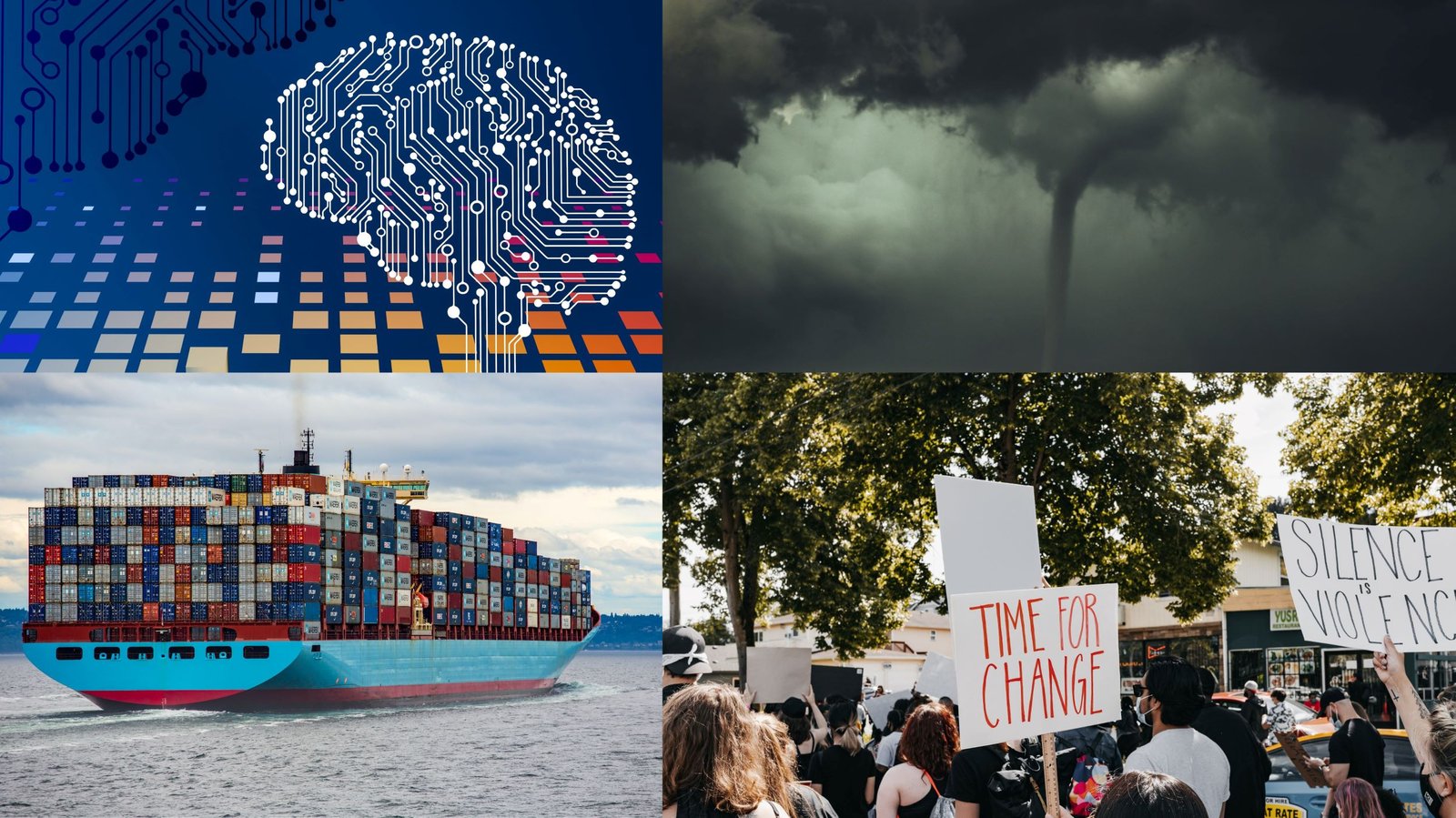What Nordic Risk Managers should focus on in 2024
ArticleJanuary 8, 2024
In an ever-changing world, risk managers face a multitude of challenges that demand their attention and expertise. As we look ahead, Zurich Nordic’s CEO Mattias Fritz shares his insights on the key areas that risk managers should focus on in 2024. From navigating geopolitical uncertainties, combating greenwashing, to building resilience against natural catastrophes and embracing artificial intelligence.
In 2024, insurance carriers and their customers will encounter an increasingly volatile risk landscape. By addressing the following key areas, risk managers can effectively manage challenges, seize opportunities, and ensure the long-term success of their organizations in a rapidly changing world.
Natural Catastrophes
The total cost for natural catastrophes for 2023 is expected to be lower than that of 2022 but higher than the 10-year average. The worst catastrophes in 2023 were the earthquakes in Turkey and Syria.
When it comes to climate-related catastrophes, storms are the major peril, with an annual average increase of seven percent over the past 30 years, according to Swiss Re. In 2023 Europe was significantly affected, particularly in Italy where large claims resulted in insurance losses of 3 billion USD. The Nordics, primarily Norway and Sweden, were heavily hit by the storm Hans resulting in substantial losses for insurers. Additionally Denmark was affected by storm floods following the storm Babet.
With increasing temperatures, it is certain that the exposure from climate-related natural catastrophes will increase in 2024. Nordic companies need to be prepared, both in preventing losses and having strong recovery plans in place when they occur.
Greenwashing
The trend of greenwashing is a growing concern as sustainability and environmental consciousness become increasingly prominent in consumer and investor decision-making. One contributing factor to the rise of greenwashing is the growing consumer demand for sustainable products and services. Many companies recognize the potential market advantage of positioning themselves as environmentally friendly, leading to an increased temptation to make false or exaggerated claims about their sustainability efforts. Additionally, the lack of standardized regulations and clear definitions surrounding sustainability and green claims makes it easier for companies to engage in greenwashing. The absence of strict oversight allows for subjective interpretations and potentially misleading marketing tactics.
However, as awareness of greenwashing grows, so does scrutiny from consumers, activists, and regulatory bodies. Organizations and watchdog groups are increasingly calling out instances of greenwashing, leading to reputational damage and potential legal consequences for companies found guilty of deceptive practices. There have already been several examples of Nordic companies accused of greenwashing, and litigation in the US is on the rise in this area. It is clear that prioritizing genuine sustainability efforts and implementing stringent communication strategies will be key in maintaining the value of the brand and avoiding becoming a target of activist groups.
Artificial Intelligence
While artificial intelligence (AI) presents numerous benefits and opportunities, it also comes with its own set of risks. It is crucial for companies to be aware of them and take appropriate measures to mitigate these risks.
One of the primary perils associated with AI is the potential for biased decision-making. AI algorithms are trained on historical data, which may contain biases or reflect societal inequalities. If not properly addressed, this can result in discrimination against certain groups and perpetuate societal inequalities.
Data privacy and security, including cyber risks, are heightened with the use of AI as it relies on vast amounts of data, often including sensitive personal information. Companies must ensure they have robust data privacy measures in place to protect this data from unauthorized access or breaches.
Overreliance on AI without human oversight can also potentially lead to errors or unintended consequences.
To mitigate these risks, companies must implement a comprehensive plan that ensures fairness, transparency, and proper controls to avoid discriminatory outcomes. Additionally, a robust cyber strategy becomes even more critical, and contingency plans should be in place to handle AI system failures.
Geopolitical uncertainty
Throughout 2024, geopolitical uncertainty is expected to persist, posing significant risks for companies. Dependence on a sole supplier can create vulnerabilities, as geopolitical events like trade wars or political instability can disrupt supply chains and hinder operations. To mitigate these challenges, the trend of diversifying suppliers to reduce reliance on a single source will continue, and conducting simulations of potential loss events will be crucial to stay prepared.
In difficulty lies opportunity
There are uncertainties ahead, so it is imperative for businesses to adopt a proactive approach towards anticipating, identifying, monitoring, and mitigating risks. However, by prioritizing these key areas, Nordic Risk Managers can build resilience and effectively ensure the enduring success of their organizations in 2024.
Zurich is one of the world’s leading insurance providers and in the Nordic region we help businesses and brokers in the global corporate, large corporate and middle-market category navigate the evolving risk landscape. To learn more about how Zurich can help your company meet tomorrow prepared, please contact Mattias Fritz, CEO Zurich Nordic.
